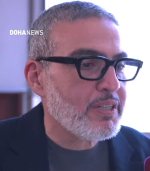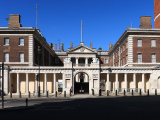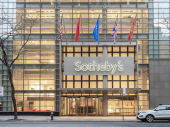
As Easter travellers endure long queues at the Port of Dover, the French interior ministry has hit back at claims that its border officials are to blame for the chaos.
France has called for the UK to adapt its infrastructure at the port in response to criticism levelled at passport workers last weekend. The ministry noted that the issue of traffic jams is observed mainly at the port of Dover, particularly during school holidays, and there is a need to adapt their infrastructure to the post-Brexit situation.
Holidaymakers travelling by ferry have been warned of three-hour waits to board, causing drivers approaching the port to expect delays of up to 90 minutes. Some have expressed concerns that they may miss their scheduled plans, with queues growing well into the afternoon. Although P&O Cruises and DFDS, the ferry operators, have reported delays of up to 90 minutes to the entrance of the port, they have reassured passengers that they will be put on the next available crossing if they miss their scheduled crossing.
Despite the delays, the chief executive of the Port of Dover, Doug Bannister, has stated that the weather is clear, and the ferries are sailing well. He added that the weekend was always scheduled to be about 30 per cent lighter than last weekend, with today being the busiest day. Bannister said that they had worked with their ferry operators to spread the demand across three days, rather than all on one day. Although this arrangement may be challenging for the coach industry, they have worked with the ferry operators to maintain their itineraries successfully. The Port of Dover has also installed a new facility to expand processing at the borders for coaches, which is operational, with one coach taking just shy of ten minutes to pass through.
The delays at the Port of Dover have sparked concerns about the UK’s infrastructure, with France calling for the UK to adapt its infrastructure to the post-Brexit situation. The UK’s infrastructure has been a subject of concern in recent years, with calls for improvements to road networks, rail infrastructure, and digital connectivity.
The UK government has stated that it is investing in the country’s infrastructure, with significant investment in transport infrastructure, digital connectivity, and housing. The government has also announced plans to improve rail and road infrastructure in the north of England, with the creation of a Northern Powerhouse.
However, the delays at the Port of Dover highlight the need for further investment in infrastructure, particularly with the UK’s departure from the European Union. As the UK continues to negotiate trade agreements and travel arrangements with EU countries, it will be essential to have efficient and reliable infrastructure in place to ensure the smooth flow of goods and people.
The delays at the Port of Dover are not new, with long queues regularly reported during peak travel periods. However, the situation has been exacerbated by Brexit and the pandemic, with additional checks required at borders and reduced capacity on ferries due to social distancing measures.
In conclusion, the delays at the Port of Dover have highlighted the need for further investment in the UK’s infrastructure, particularly in response to the country’s departure from the European Union. With trade agreements and travel arrangements still being negotiated, it is essential to have efficient and reliable infrastructure in place to ensure the smooth flow of goods and people. While the UK government has announced plans to invest in transport infrastructure, digital connectivity, and housing, further investment may be needed to meet the demands of post-Brexit travel and trade. Photo by Dover Port by Oast House Archive, Wikimedia commons.




































